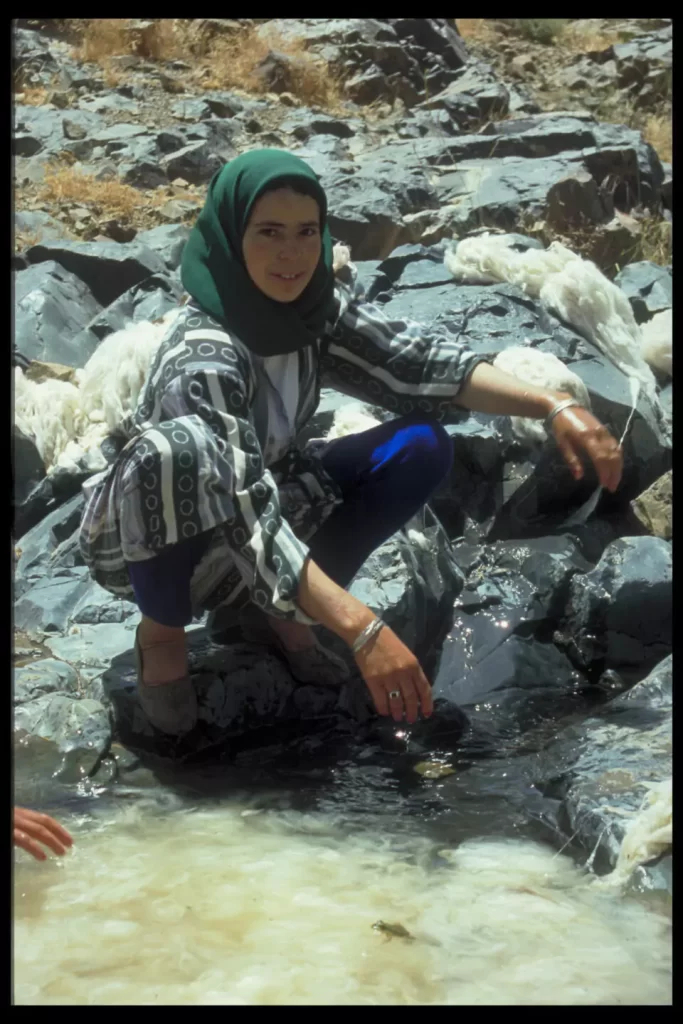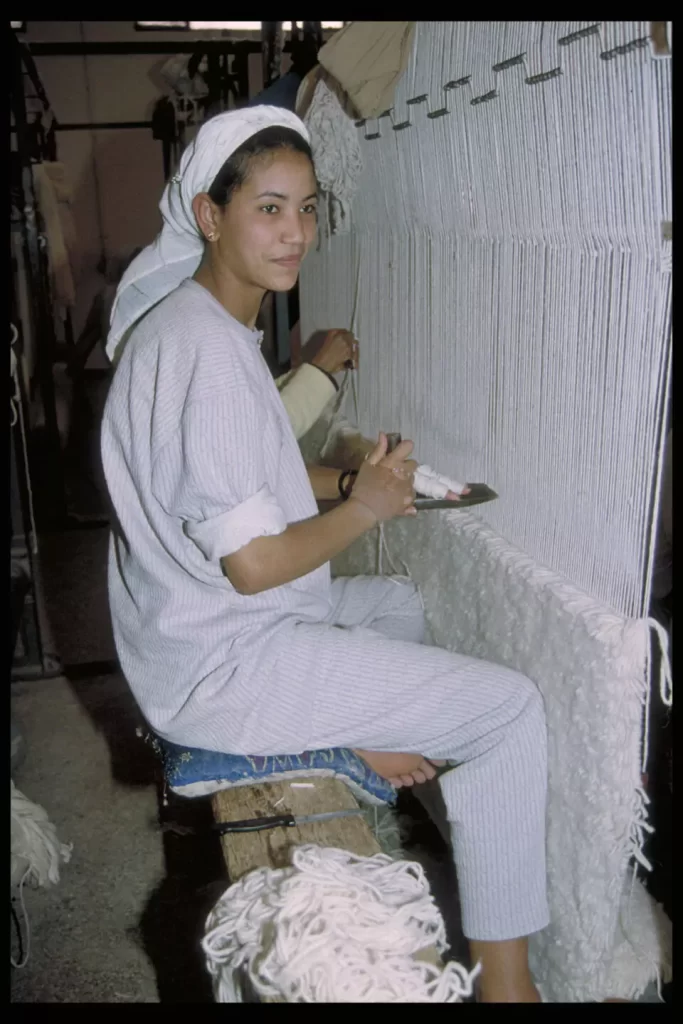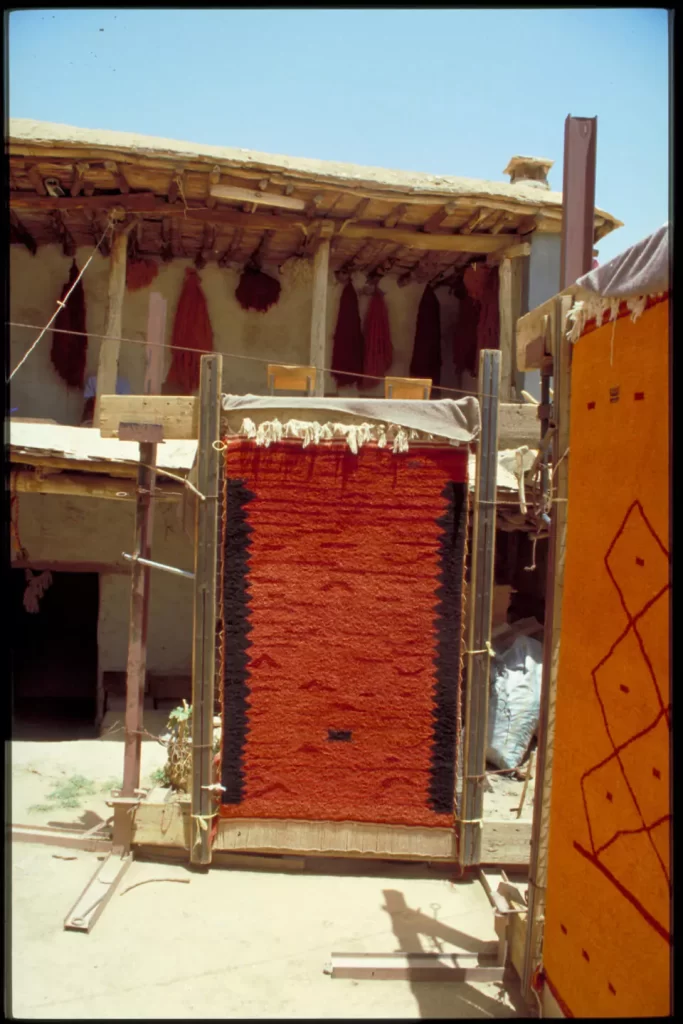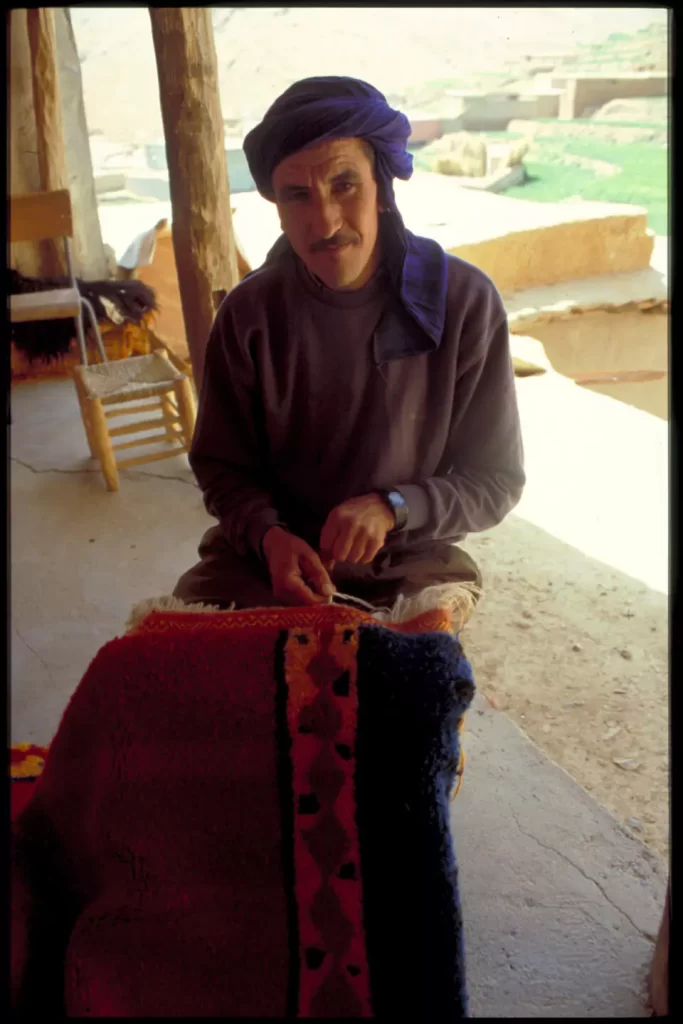Label STEP is partnering with the Maison de l’Artisan, a Morocco’s government-run organization dedicated to supporting professionals in the craft sector, in a mandate to improve and update the country’s carpet industry for the present day.
History of Handmade Carpet Making in Morocco
Located in the Maghreb region of North Africa, Morocco is home to some of the world’s earliest handmade rug traditions. The country’s enduring carpet designs and techniques are often attributed to the Amazigh (Berber) peoples and other nomadic indigenous tribes from the region, with additional localized designs appearing across cities and towns as they developed.
Morocco’s varied landscape, which spans from arid desert terrain to high-altitude mountain ranges, informed the rise of two principal styles of carpets: light flatweaves and coarser high piles.

Morocco’s rugs are globally admired for their free-spirited artistry and bold character. They are not merely decorative pieces but also serve as storytelling tools, reflecting the traditions, customs, and beliefs of the communities that create them. Each carpet often carries symbolic motifs and patterns that hold deep meaning within Moroccan culture.
The widespread popularity of these designs, particularly across Western countries, is due in large part to renowned midcentury designers like Eames, Le Corbusier, and Alvar Alto. These designers and others paired the colourful and maximalist Amazigh carpets with their sleek, minimalist furniture, initiating a trend that persists today.
The production of handmade rugs in the country continues in countless rural villages but is now supplemented by more formalized workshops in central urban areas that arose throughout the 1970s and 80s.
While the diversity of production styles and techniques is certainly one of the strengths of the Moroccan rug industry, it has also given rise to some difficulties for weavers such as a lack of access to reliable and fair pay, health and safety measures, and technical support.
STEP in Morocco
Label STEP has been working with Morocco’s handmade carpet industry since 2000, covering both traditional rural weaving in private homes and small workshops as well as the more formal and centralised production sites mostly found in urban coastal areas of the country.
As always, STEP’s foremost objective is to monitor the compliance with STEP’s industry-leading fair trade Standard in all aspects of the country’s carpet supply chain. However, in addition to this STEP has located specific ways to support Morocco’s specific needs such as technical support in the areas of wool dyeing and washing as well as health and safety programs directed at the rural weaving communities.
In late 2022, STEP partnered with Maison de l’Artisan, a Moroccan government-run organization aimed at providing professionals in their country’s craft sector with the assistance and supervision necessary for commercial prosperity, both nationally and internationally.
“There is no doubt today that the craft sector is a buoyant and dynamic sector of our economy,” the Maison de L’Artisan notes. “In addition to the important place it occupies in the national economic fabric, it has the particularity of conveying the civilizational content of artistic heritage and culture of our country.”
STEP looks forward to working with the organization to help improve and update the country’s carpet industry for the present day. The primary concentrations of this partnership are to help preserve traditional techniques, strengthen the industry’s sustainability, promote their access to international markets, and improve the overall conditions of its weavers and workers.
Looking Forward: The Future of Morocco’s Handmade Rugs
One thing is clear: These efforts are already well underway. STEP Partner Beni Rugs has set a high standard with a remarkable model. In 2017, Beni’s established a top-tier workshop in the Tameslouht area, where they offer their weavers transportation, childcare, support in accessing government benefits, and wages that are double the standard for Moroccan weavers.
“What’s so remarkable is that the company has built such strong trust in this community that families are willing to let their wives, sisters, and daughters travel to work there,” STEP’s Managing Director Reto Aschwanden told Fast Company. “In many places in the world, men don’t let women leave the house, partly because it simply isn’t safe. And by earning a decent income, these women have more power in their communities.”
Aschwanden added how Beni’s comprehensive fair trade model provides participating female weavers with a different kind of freedom: “Some women are eager to leave the home, and this model allows them to do just that,” he says. “They can meet new people, learn about life in other countries. This opens the world to them.” STEP looks forward to more projects like the one at Beni, and the possibility of extending the country’s vibrant artisan crafts to a broader market.
source: label-step.org








